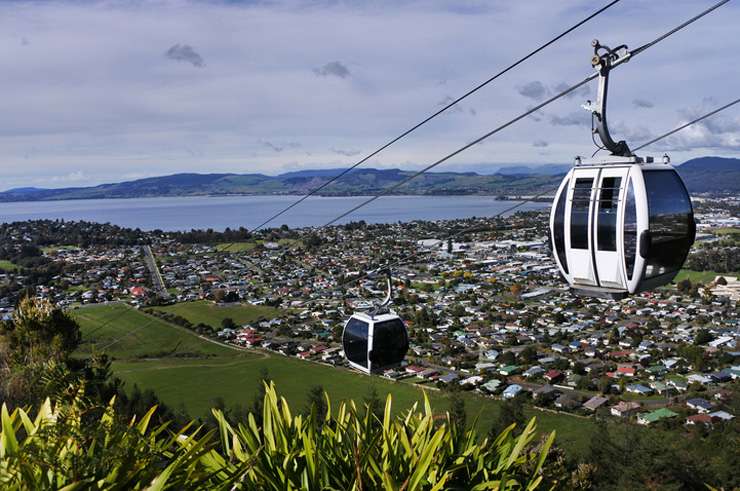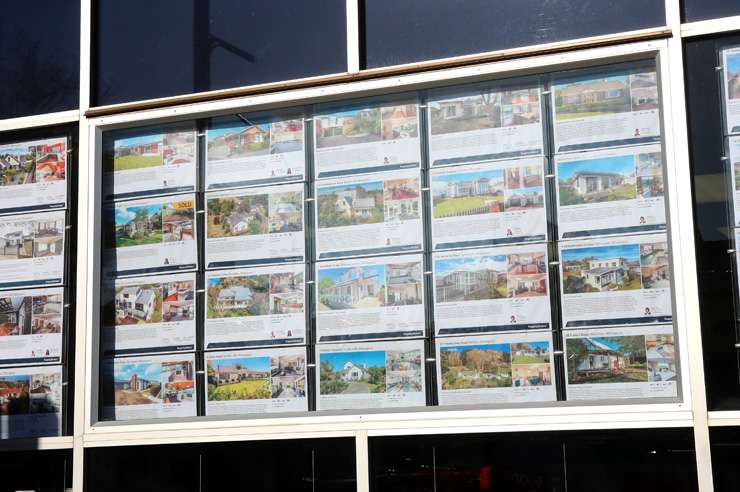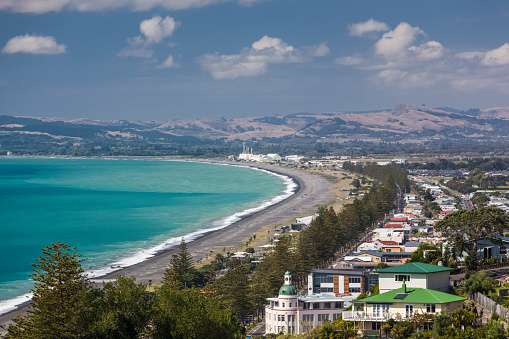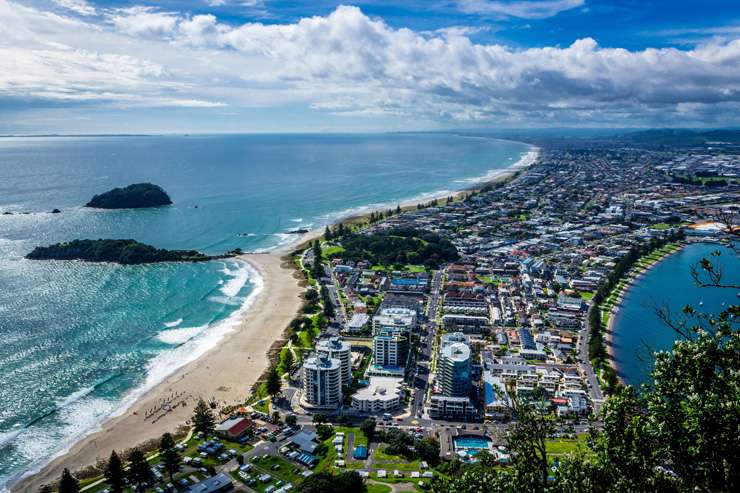Real estate agents around the country have been surprised at the level of activity in the housing market since the end of the first lockdown in May.
Outside Auckland the hunger to buy is just as high, with agents likening the market to a game of musical chairs: every time the music stops a whole lot of people miss out.
READ MORE: Find out if your suburb is rising or falling
Listings are low, however, and agents are reporting that while some people want to sell they are not going to market because they are scared they won’t be able to buy.
Start your property search
And with prices rising, some agents are concerned about the spin-off into the rental market, because when house prices rise so do rents.
A building boom to outpace the housing demand is needed fast, says The Professionals’ Steve Lovegrove in Rotorua, because the rental situation is so serious that without that there could be a wave of homelessness and poverty.
Lovegrove is not surprised house prices have remained strong. “The truth is that economic factors do not affect the housing market when you have a situation where demand far outstrips supply.
'People aren't cashing up'
“The market is about how many roofs over how many heads, simple. It’s like a game of musical chairs. Every day in the market more people (population growth) are entering the game while not enough chairs (houses) exist.
“Every time the music stops for a sale, people are missing out, thus the scramble to pay more ensues.”
The intensity of the buyer demand has surprised him, as well as the shortfall in properties coming to market.
“People aren’t cashing up to the level that would have been expected. Many are taking a wait-and-see approach and this holds back the market because properties are simply not being transacted.”

Agents in Rotorua say buyers are missing out. Photo / Getty Images
This means the market is heading back into boom territory. “All methods of control governments and banks have tried to curb the housing market inflation over the last 10 years have simply not worked.”
Lovegrove says with returns in the rental market at about 5 per cent and with interest rates at 2.55 per cent the cost of money is half the cost of renting.
In past markets the equation has been the other way around, he says.
“It doesn’t take much working out that on that basis rental stock will decline and rent prices will go up. For the people who cannot gather a deposit to buy a home we will be back to that musical chairs game and New Zealand will have a massive wave of homelessness and poverty.
“It’s the shortage of houses, not house prices, that is going to leave the country with a phenomenal social cost.”
However, more and more first home buyers are likely to get on the property ladder because renting has become more expensive and difficult.
“Getting a mortgage will be seen as less risky than finding a rental.”
'We can't get enough houses to sell'
Investors are likely to adapt to the recent law changes and return to the market, especially if banks become more confident about security in housing asset bases, and with more people coming back from overseas than there are houses being built for them, the increasing prices will reflect that.
Buyers should be prepared to pay an extra 5 per cent to secure the right house, Lovegrove advises.
Many agents in the regions have been surprised at the level of activity since the end of the first lockdown in May.
Ritesh Verma, from Property Brokers in Whanganui, says with all the recession talk he was expecting prices to ease but it’s gone the other way.
“The team simply can’t get enough houses to sell.”
Verma sees the market in “mini-boom” territory with the all-time low interest rates and money in the bank earning little interest. These factors have made provincial New Zealand more popular than ever, he says, but calling the market a full boom is going a little too far. “I’m not sure if we have felt the full effect of Covid and with a lack of stock around I would be reluctant to call it a boom.”

Whanganui's housing market was hot before Covid-19 and has been hot since. Photo / Supplied
Lack of stock is a concern. While his team is doing plenty of appraisals people are reluctant to sell because they have nowhere to go.
And while first home buyers will be out in force, and it’s still possible to get a good home for $400,000 in the regions, he says this is becoming harder.
Investors, too, are out and about. The yield may not be the 10 per cent they were getting a few years ago, but 4 to 7 per cent is still better than the bank.
“Investors are getting savvy and converting three bedrooms into four, or adding on another dwelling to create a better yield.”
And prices just keep on going up. “I believe we will have a lot of people wanting to live in New Zealand, meaning our population will increase again, driving prices up.”
Buyers should be getting their ducks in a row and making sure they are pre-approved with finance. “Get friendly with a good agent to keep you in the loop with new houses coming to the market and to guide you through the offer stage.”
Philippa Ivory, from Ray White in Whanganui, also says the market is strong with properties in high demand. “A combination of new investors in our market, first home buyers and expat Kiwis, plus those coming from elsewhere in New Zealand, is driving demand. There are fewer listings and they are selling quickly.”
She, too, is concerned about the rental market. “While landlords stand to make significant capital gains they are balancing this with increased compliance costs and some are choosing to sell. When they do, the new owner, who has paid significantly more, has to put rent up to cover their increased investment.
“First home buyers are going to have to borrow more to get into a home but fortunately the rates are low so repayments are manageable when compared to rent, especially in Whanganui.”
Playing catch-up
Investors need to understand the complexity of the legislation before they buy a rental property, she warns.
“Healthy Homes and the updated Residential Tenancies Act (RTA) will have an impact on how the rental business is done in the future. Knowing the acts, or having your properties professionally managed, will be critical to future success.”
Ivory doesn’t think there is much prospect of house prices dropping. “When more land is free for development and new houses start being built we may see a plateau of the price on existing houses. Of course, that is dependent on there being enough builders and other tradespeople to do the work.”
She also says listings are low, despite this being a sellers’ market.
“Potentially post-election people will feel confident enough to list, removing the existing Catch-22 of people wanting to sell but having nowhere to go.”
John Bartley, from Bayleys Whanganui and Ruapehu, says the Whanganui region continues to experience record residential sale prices and increased buyer inquiry with the trend also seeing an increase in the number of home owners getting appraisals to find out the value of their biggest asset.
“I think our region is experiencing a boom and has been playing catch-up for a number of years, but we still have a way to go.
“As we head into what is traditionally a busy time for buying and selling we expect to see continued growth in prices and the number of sales as conditions are favourable with continued low interest rates.”
Bartley’s biggest concern is the global impact of Covid-19 as a number of countries are continuing to struggle and this will have a ripple effect on New Zealand. “I would also be concerned if we continue to go into lockdown restrictions.”
First home buyers in his region should act quickly or risk being priced out of the market, he says. The area is a great location for investing and while prices will likely keep rising, Whanganui is affordable.

Hawke's Bay has seen some the biggest rises in property values since the end of the first lockdown. Photo / Getty Images
In Hawke’s Bay/Gisborne, Property Brokers regional manager Joe Snee says he remained relatively optimistic about the market coming out of lockdown.
“Unforeseen factors, such as residents coming home from overseas and individuals planning to go overseas now forced to stay, have contributed to the increased demand. This has been more influential in our region than I had anticipated.”
But while the regional property market has been buoyant and climbing for a number of years, the full economic impact of the Covid pandemic and its impact on employment is yet to be seen. “The impact this has on interest rates and individual’s ability to borrow money will play a role on current supply and demand.”
The changes to the RTA will have an impact for some investors, and the extremely low levels of property available could impact the market.
But as long as first home buyers have jobs, they will likely remain active, as will investors.
Concerns over rising prices
Over in Hamilton, Jeremy O’Rourke, managing director of Lodge Real Estate, says lockdown did nothing to curb the rising strength of the housing market and post-lockdown there was a surge of demand.
“ The market has certainly entered boom territory. What we’re concerned about now is that prices are rising too quickly, making it harder for first home buyers to raise a deposit and enter the market.
“One key cause of rising prices is a shortage of new listings, and it’s something we’re seeing replicated in the rental market, where we’re receiving more than 700 inquiries for around 30 available rental properties out of the 3400 on our books.”
O’Rourke sees the slow release of land for new builds putting further pressure on housing demands.
“Over the summer months, I expect to see first home buyers remain active but facing increased competition from investors chasing better yields than are available at the bank. They’re also conscious there may be a rental income upside in existing rents.”
Prices will continue to climb, reaching new heights driven by demand from expats, first home buyers, investors and people up-buying, who are encouraged by the sellers’ market and lower interest rates. But demand will continue to outweigh supply.
Fraser Coombes, managing director of Ray White in Hamilton, says: “Housing stock in the Waikato is down 21.1 per cent compared to September 2019 and the market is currently down to 12 weeks of stock.
“Government stimulus measures, low interest rates, lifestyle changes and FOMO have driven the market resurgence.”
In Hamilton there are opportunities for first home buyers to buy and add value to ex-rentals which require healthy homes work.
Some investors will add to their portfolios with increasing equity due to rising house prices and record low interest rates, and there is likely to be continued price growth from low stock levels, a lack of choice, and competition compounded with falling interest rates.
Coombes says: “Pre-approved finance is strongly encouraged when there is this much pace in the market. I’d have a defined list of must-haves and nice-to-haves when critiquing properties and be willing to compromise.
“I’d attend open homes and private viewings as opposed to viewing properties online and asking the salesperson what it is likely to sell for. By physically viewing you are able to consider the value of the neighbourhood, privacy, security, proximity to amenities, the vibe of the property and so forth.”

Tauranga has been boosted by some high-profile waterfront sales. Photo / Getty Images
Simon Anderson, managing director for Realty Services in Tauranga, predicted a bounce in sales over June and July due to the impact Covid had in earlier months and wasn’t wrong.
“In our patch, the residential market was 84 per cent back on the previous year and our company was 78 per cent back so there had to be some pent-up need due to this. However, to see the way it has behaved over August and September has been a huge surprise to me.”
The main reasons include the market catching up after the lockdown, people’s desire to own property in uncertain times, the low interest rate environment and because the past 10 years have been pretty good economically, there is a fair amount of cash in the system.
The market will remain busy, he says. “I have never seen in my 19 years in real estate where all residential markets are busy at the same time. First home buyers, investors, second home buyers, lifestylers and luxury buyers are all active.”
Be prepared to compete
A concern is the potential shortage of listings over the spring.
Demand from first home buyers is likely to continue and while many investors are looking to sell, due to the continued introduction of new rules, new investors will simply accept the new rules as the way it is and will purchase anyway.
“Low interest rates makes property investment a smart decision. I see demand continuing.”
At the top of the country, Paul Beazley from Eves Whangarei says the market has been hectic since lockdown.
“I don’t think anyone predicted a buoyant market and most pundits expected a slow and cautious market through the winter and early spring.”
Demand from first home buyers and investors has been strong resulting in record median prices and with the supply of new listing stock not keeping up with demand there has been strong, competitive bidding at auctions with multi-offers on most new listings.
“With the overall shortage of housing throughout the country there is a strong possibility the demand will continue to outstrip supply. Buyers need to be prepared to compete for their favoured property and should, if possible, have their finance pre-approved, so as much homework as possible, and know their buying capacity.”

















































































